Olenko minä tullut haaremiin (1938)
장르 : 코미디, 로맨스
상영시간 : 1시간 3분
연출 : T.J. Särkkä, Yrjö Norta
각본 : Jorma Nortimo
시놉시스

Unlike any other opera, the so-called Beggar's Opera is not just one composition, but a lineage of adapted compositions, beginning with the original hugely successful 1728 political satire written by Englishman John Gay. Composers and writers have penned variations on it ever since. The most famous of these was A Threepenny Opera by Bertholt Brecht and Kurt Weill. Some things these compositions share in common is their setting among the poor and criminal classes, and the roguish character Macheath. This production is based on an adaptation of Gay's original by Vaclav Havel the freedom-fighter, writer and philosopher who became the first (and only) president of the united post-communist country of Czechoslovakia, and it retains many traces of its theatrical origins. Film reviewers were not too tolerant of what they called "slavish adherence" to the noted Czech writer's stage production, but theater, philosophy and history buffs may feel otherwise.

When Esteban, Coral's boyfriend, is imprisoned for quarreling with a troublemaker who was trying to harass her, she decides to lock herself up in a Sevillian house to share his misfortune.
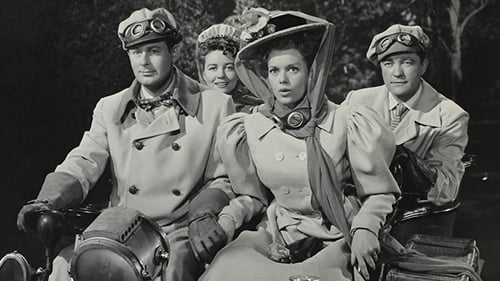
The third film version of James Hagan's play, this time with songs added, starring Dennis Morgan as a dentist who marries patient and loyal Dorothy Malone despite his constant infatuation with sexy flirt Janis Paige. Filmed previously in 1933 ("One Sunday Afternoon") and 1941 ("The Strawberry Blonde").

에스파냐의 탐험가 프란시스코 피사로는 에스파냐 왕실의 도움으로 200명이 채 안 되는 부하들을 이끌고 잉카제국 정복에 나선다. 지병에 시달리면서도 천신만고 끝에 페루에 도착한 피사로와 그의 부하들은 잉카제국의 황제이자 ‘태양의 아들’ 아타왈파에게 회견을 청한다. 아타왈파는 비무장 상태인 수행원들과 함께 피사로 앞에 나서지만 개종을 하고 에스파냐의 왕에게 충성을 바치라는 에스파냐 측의 요구를 거부하고 성경을 내동댕이친다. 이를 신호로 화승총과 대포를 앞세운 에스파냐군의 공격이 시작되고 수많은 잉카인들이 일방적인 학살을 당하고 아타왈파는 체포된다. 몸값으로 금을 지불하면 풀어주겠다는 말에 막대한 양의 황금보물들이 잉카 각지에서 실려 오고 침략자들은 이를 녹여 금괴로 만든다. 한편 잉카제국을 손아귀에 넣고 싶은 욕망과 아타왈파에 대한 연민사이에서 갈등하는 피사로는 부하들의 반발을 사게 된다. 결국 아타왈파의 신병문제로 재판이 열리는데... (EBS)

Pinky Scariano, Allan Ross, and Frankie Davis all join the Army Air Forces with hopes of becoming pilots. In training, they meet and become pals with Bobby Grills and Irving Miller, and the five struggle through the rigid training and grueling tests involved in becoming pilots. Not all of them succeed, and tragedy awaits for some.

Marguerite is seated in front of the fireplace, Faust standing by her side. Mephistopheles enters and offers his sword to Faust, commanding him to behead the fair Marguerite. Faust refuses, whereupon Mephistopheles draws the sword across the throat of the lady and she suddenly disappears and Faust is seated in her place.

Prospero and his daughter Miranda must take refuge on an enchanted island. There Prospero, who himself has magical powers, releases the spirit Ariel from a spell, and also meets the savage Caliban. Then Prospero uses his powers to create a tempest that shipwrecks some of the persons who caused his exile.
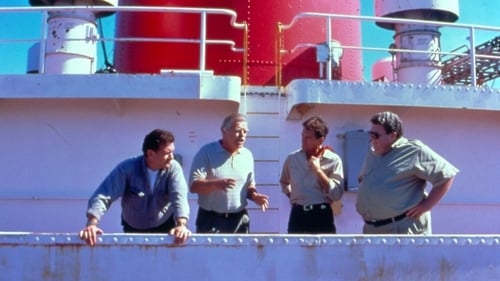
A college student befriends various crew members while working a summer internship at sea.

The film tells the story of a wayward nun, Megildis, who deserts her convent with a knight, influenced by the music of an evil minstrel. A statue of the Virgin Mary comes to life and takes place of Megildis, who makes her way through the world and its many vicissitudes.

Based on characters from Shakespeare's play: When Juliet's father refuses to let Romeo see her, Romeo resorts to extreme measures.

Based on a play by Phoebe and Henry Ephron, "3 Is a Family" is a 1940s farce. Charlie Ruggles plays a hubby whose bungled business schemes force his wife, Fay Bainter, to enter the workplace. The couple's daughter, Marjorie Reynolds, shows up with her twin babies in tow. Son Arthur Lake arrives with his pregnant wife (Jeff Donnell). And overbearing maiden aunt Helen Broderick also decides to move in. Because his wife is away at work, poor old Charlie Ruggles is not only housekeeper, but nursemaid and servant as well.

Based on Shakespeare's play, Act V, Scene vii: King John is in torment, and his supporters fear that his end is near. As he writhes in agony, he is attended by Prince Henry, the Earl of Pembroke, and Robert Bigot. Prince Henry tries repeatedly to comfort his delirious father, but to no avail - John's pain is too great.
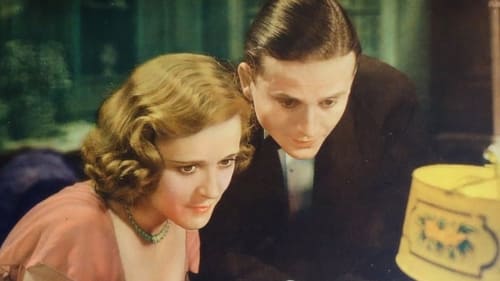
At a reception given by Arthur Hilton at his Sussex home the conversation turns to the subject of danger, with Hilton recalling a case in which he was involved as a Natal police commissioner. In it there were three guilty persons, but only one of them was hanged; the other two were sentenced to long terms, vowing vengeance on Hilton. Unknown to him, the same two men are now among his guests, and are determined to have their revenge.
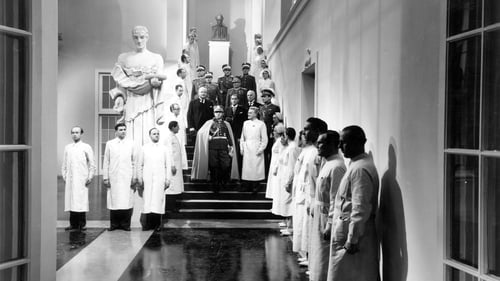
The White Plague, a leprosy-like disease, ravages the world during a war. Based on a play by Karel Čapek.

Romantic quadrangle involving two brothers, one a burgeoning ballet composer; a willful heiress; and a waif.
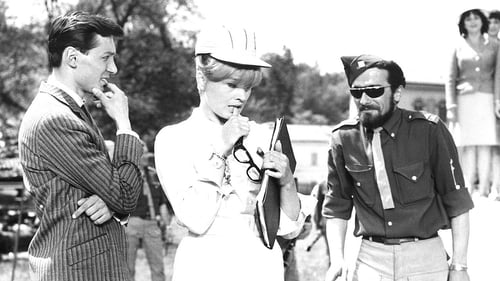
A military base. An awkward soldier. A statue of Bach. And suddenly all guns in the area change into music instruments. Great mystery is immediately found by TV station. And soon the military base becomes a stage for huge TV show.

A woman, after committing a murder, flees into a church, confessing her life story to a priest.

Three attendees at a puppet theater don various roles in order to sing a variety of songs by Jacques Brel, all while hippies and other eccentrics cavort about them.

In this drama, a 50-year-old married man (played by John Halliday) goes with his wife (Belle Bennett) and son (Junior Durkin) to a nightclub in a fancy hotel in Detroit. He meets a gold-digger (Dorothy Burgess) there, singing the theme song of the picture, and eventually ends up going out with her on a subsequent occasion and falls in love with her. His wife finally finds out and this leads to her leaving him and getting a divorce in Paris. He is married to the gold-digger but finds life with her and her "jazz friends" to be too much for him. He begins to long for his old wife when he finds her in a nightclub with another man and becomes jealous.

The Protar Affair (Romanian: Afacerea Protar) is a 1956 Romanian comedy film directed by Haralambie Boroș. It was entered into the 1956 Cannes Film Festival.
















